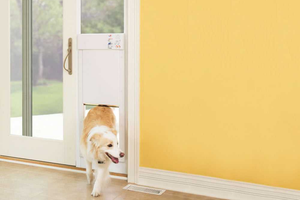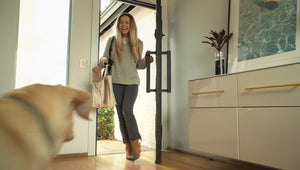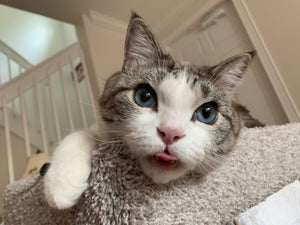Best Ways to Keep Your Pet Safe From Harm
Caring for a pet is a full-time job. It involves more than just regular feedings and exercise time; pets count on their owners to keep them safe from harm.

Protecting your pet starts with recognizing all of the potential dangers to their health and safety. Your cat or dog is not aware that ingesting certain substances or wandering away from home both pose a risk. It is up to you as their owner to create an environment free from danger.
Consider taking these steps to keep your furry friend safe at all times:
Explore your space
Cats and dogs will find a way to get into hidden corners and small spaces, and in doing so, can encounter sharp objects, candy wrappers, pieces of food and other small articles that may pose as a choking hazard or digestive issues. Make an effort to get into these places and clean out dust and debris, and if possible, seal off small spaces to make them inaccessible to your pet.
Track your pets
Invest in a collar and ID tags for your cat or dog. Each tag should include a current phone number where you can be reached. Additionally, implanting a microchip -- a quick and painless process for your pet-- can help a veterinary clinic or shelter to retrieve your contact information if your lost or recovered pet ends up at their facility.
Secure the yard
If you plan to keep your cat or dog outdoors, enclosing your yard with a fence or wireless containment system should be your top priority. It will not entirely prevent your pet from wandering, but it will encourage them to stick around. A wireless fence system can be generally easy to install, and not too costly if you can DIY. Build a warm, dry shelter – like a doghouse – that will protect them during severe weather conditions. Install a pet door, so they can have a place to retreat if threatened by a wild animal.
The benefits of Pet doors are not just limited to securing the yard. There are many ways through which a Pet Door can make you and your pet’s life easier. If you are divided on whether to buy or not buy a PetDoor, you should read this guide.
Check for spills
Spilled motor oil or antifreeze on the garage floor or driveway can have serious consequences for your pets. Ethylene glycol, an ingredient in antifreeze, can permanently damage an animal's kidneys if they ingest even a trace amount. Less than an ounce can kill a cat and two ounces is enough to kill a large dog. Many household chemicals are equally lethal to animals. Clean up spilled chemicals without delay; your pet's life and safety can depend on it.
Nix table scraps
Dogs and cats are good at convincing you to fork over what's on your dinner plate instead of eating what's in their bowl. Don't give in to that pleading look! Feeding your pet certain foods and drinks can have severely dangerous outcomes. Chocolate, candy and gum contain toxic substances that can cause multiple organs to fail in animals. Alcohol can cause blood sugar, blood pressure and body temperature to fall in an animal., which could leave them open to suffering anything from seizures, to respiratory failure.
Think safety first
Pets depend on their human owners for security and happiness. Providing these things means creating the optimal living environment for your cat or dog. This starts with eliminating the factors most likely to put them in danger.




